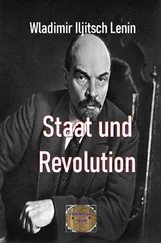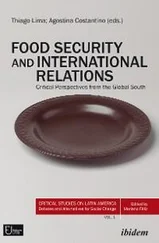Leon Trotsky - Our Revolution - Essays on Working-Class and International Revolution, 1904-1917
Здесь есть возможность читать онлайн «Leon Trotsky - Our Revolution - Essays on Working-Class and International Revolution, 1904-1917» — ознакомительный отрывок электронной книги совершенно бесплатно, а после прочтения отрывка купить полную версию. В некоторых случаях можно слушать аудио, скачать через торрент в формате fb2 и присутствует краткое содержание. Жанр: Русская классическая проза, foreign_language, на английском языке. Описание произведения, (предисловие) а так же отзывы посетителей доступны на портале библиотеки ЛибКат.
- Название:Our Revolution: Essays on Working-Class and International Revolution, 1904-1917
- Автор:
- Жанр:
- Год:неизвестен
- ISBN:нет данных
- Рейтинг книги:4 / 5. Голосов: 1
-
Избранное:Добавить в избранное
- Отзывы:
-
Ваша оценка:
- 80
- 1
- 2
- 3
- 4
- 5
Our Revolution: Essays on Working-Class and International Revolution, 1904-1917: краткое содержание, описание и аннотация
Предлагаем к чтению аннотацию, описание, краткое содержание или предисловие (зависит от того, что написал сам автор книги «Our Revolution: Essays on Working-Class and International Revolution, 1904-1917»). Если вы не нашли необходимую информацию о книге — напишите в комментариях, мы постараемся отыскать её.
Our Revolution: Essays on Working-Class and International Revolution, 1904-1917 — читать онлайн ознакомительный отрывок
Ниже представлен текст книги, разбитый по страницам. Система сохранения места последней прочитанной страницы, позволяет с удобством читать онлайн бесплатно книгу «Our Revolution: Essays on Working-Class and International Revolution, 1904-1917», без необходимости каждый раз заново искать на чём Вы остановились. Поставьте закладку, и сможете в любой момент перейти на страницу, на которой закончили чтение.
Интервал:
Закладка:
The pent up feelings are seeking an outlet. Thought strives to turn into action. The vociferous liberal press, however, while feeding popular unrest, tends to divert its current into a small channel; it spreads superstitious reverence for "public opinion," helpless, unorganized "public opinion," which does not discharge itself into action; it brands the revolutionary method of national emancipation; it upholds the illusion of legality; it centers all the attention and all the hopes of the embittered groups around the Zemstvo campaign, thus systematically preparing a great debacle for the popular movement. Acute dissatisfaction, finding no outlet, discouraged by the inevitable failure of the legal Zemstvo campaign which has no traditions of revolutionary struggle in the past and no clear prospects in the future, must necessarily manifest itself in an outbreak of desperate terrorism, leaving radical intellectuals in the rôle of helpless, passive, though sympathetic onlookers, leaving liberals to choke in a fit of platonic enthusiasm while lending doubtful assistance.
This ought not to take place. We ought to take hold of the current of popular excitement; we ought to turn the attention of numerous dissatisfied social groups to one colossal undertaking headed by the proletariat, – to the National Revolution .
The vanguard of the Revolution ought to wake from indolence all other elements of the people; to appear here and there and everywhere; to put the questions of political struggle in the boldest possible fashion; to call, to castigate, to unmask hypocritical democracy; to make democrats and Zemstvo liberals clash against each other; to wake again and again, to call, to castigate, to demand a clear answer to the question, What are you going to do? to allow no retreat; to compel the legal liberals to admit their own weakness; to alienate from them the democratic elements and help the latter along the way of the revolution. To do this work means to draw the threads of sympathy of all the democratic opposition towards the revolutionary campaign of the proletariat.
We ought to do all in our power to draw the attention and gain the sympathy of the poor non-proletarian city population. During the last mass actions of the proletariat, as in the general strikes of 1903 in the South, nothing was done in this respect, and this was the weakest point of the preparatory work. According to press correspondents, the queerest rumors often circulated among the population as to the intentions of the strikers. The city inhabitants expected attacks on their houses, the store keepers were afraid of being looted, the Jews were in a dread of pogroms. This ought to be avoided. A political strike, as a single combat of the city proletariat with the police and the army, the remaining population being hostile or even indifferent, is doomed to failure.
The indifference of the population would tell primarily on the morale of the proletariat itself, and then on the attitude of the soldiers. Under such conditions, the stand of the administration must necessarily be more determined. The generals would remind the officers, and the officers would pass to the soldiers the words of Dragomirov: "Rifles are given for sharp shooting, and nobody is permitted to squander cartridges for nothing."
A political strike of the proletariat ought to turn into a political demonstration of the population , this is the first prerequisite of success.
The second important prerequisite is the mood of the army. A dissatisfaction among the soldiers, a vague sympathy for the "revoluters," is an established fact. Only part of this sympathy may rightly be attributed to our direct propaganda among the soldiers. The major part is done by the practical clashes between army units and protesting masses. Only hopeless idiots or avowed scoundrels dare to shoot at a living target. An overwhelming majority of the soldiers are loathe to serve as executioners; this is unanimously admitted by all correspondents describing the battles of the army with unarmed people. The average soldier aims above the heads of the crowd. It would be unnatural if the reverse were the case. When the Bessarabian regiment received orders to quell the Kiev general strike, the commander declared he could not vouch for the attitude of his soldiers. The order, then, was sent to the Cherson regiment, but there was not one half-company in the entire regiment which would live up to the expectations of their superiors.
Kiev was no exception. The conditions of the army must now be more favorable for the revolution than they were in 1903. We have gone through a year of war. It is hardly possible to measure the influence of the past year on the minds of the army. The influence, however, must be enormous. War draws not only the attention of the people, it arouses also the professional interest of the army. Our ships are slow, our guns have a short range, our soldiers are uneducated, our sergeants have neither compass nor map, our soldiers are bare-footed, hungry, and freezing, our Red Cross is stealing, our commissariat is stealing, – rumors and facts of this kind leak down to the army and are being eagerly absorbed. Each rumor, as strong acid, dissolves the rust of mental drill. Years of peaceful propaganda could hardly equal in their results one day of warfare. The mere mechanism of discipline remains, the faith, however, the conviction that it is right to carry out orders, the belief that the present conditions can be continued, are rapidly dwindling. The less faith the army has in absolutism, the more faith it has in its foes.
We ought to make use of this situation. We ought to explain to the soldiers the meaning of the workingmen's action which is being prepared by the Party. We ought to make profuse use of the slogan which is bound to unite the army with the revolutionary people, Away with the War! We ought to create a situation where the officers would not be able to trust their soldiers at the crucial moment. This would reflect on the attitude of the officers themselves.
The rest will be done by the street. It will dissolve the remnants of the barrack-hypnosis in the revolutionary enthusiasm of the people.
The main factor, however, remain the revolutionary masses. True it is that during the war the most advanced elements of the masses, the thinking proletariat, have not stepped openly to the front with that degree of determination which was required by the critical historic moment. Yet it would manifest a lack of political backbone and a deplorable superficiality, should one draw from this fact any kind of pessimistic conclusions.
The war has fallen upon our public life with all its colossal weight. The dreadful monster, breathing blood and fire, loomed up on the political horizon, shutting out everything, sinking its steel clutches into the body of the people, inflicting wound upon wound, causing mortal pain, which for a moment makes it even impossible to ask for the causes of the pain. The war, as every great disaster, accompanied by crisis, unemployment, mobilization, hunger and death, stunned the people, caused despair, but not protest. This is, however, only a beginning. Raw masses of the people, silent social strata, which yesterday had no connection with the revolutionary elements, were knocked by sheer mechanical power of facts to face the central event of present-day Russia, the war. They were horrified, they could not catch their breaths. The revolutionary elements, who prior to the war had ignored the passive masses, were affected by the atmosphere of despair and concentrated horror. This atmosphere enveloped them, it pressed with a leaden weight on their minds. The voice of determined protest could hardly be raised in the midst of elemental suffering. The revolutionary proletariat which had not yet recovered from the wounds received in July, 1903, was powerless to oppose the "call of the primitive."
Читать дальшеИнтервал:
Закладка:
Похожие книги на «Our Revolution: Essays on Working-Class and International Revolution, 1904-1917»
Представляем Вашему вниманию похожие книги на «Our Revolution: Essays on Working-Class and International Revolution, 1904-1917» списком для выбора. Мы отобрали схожую по названию и смыслу литературу в надежде предоставить читателям больше вариантов отыскать новые, интересные, ещё непрочитанные произведения.
Обсуждение, отзывы о книге «Our Revolution: Essays on Working-Class and International Revolution, 1904-1917» и просто собственные мнения читателей. Оставьте ваши комментарии, напишите, что Вы думаете о произведении, его смысле или главных героях. Укажите что конкретно понравилось, а что нет, и почему Вы так считаете.












